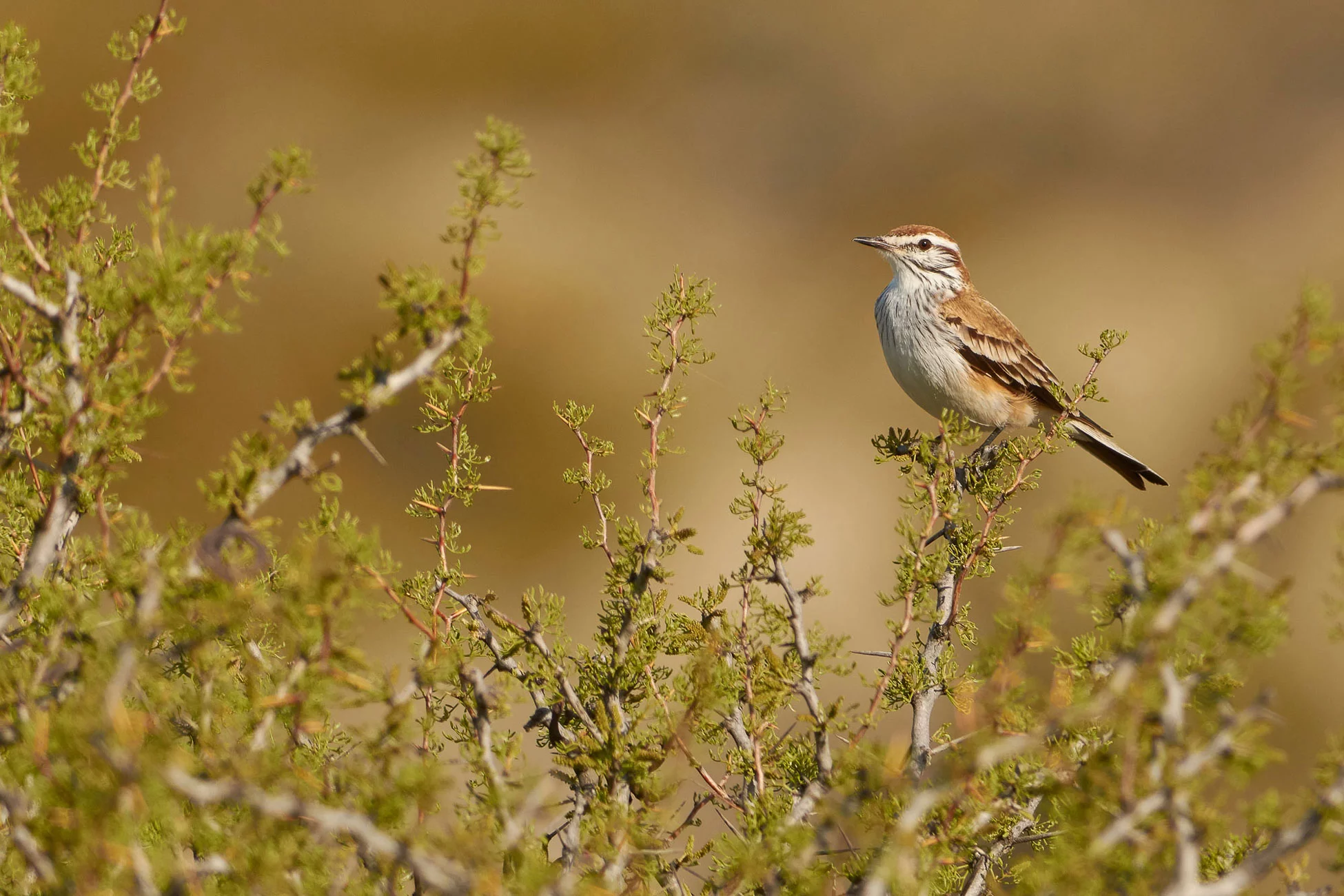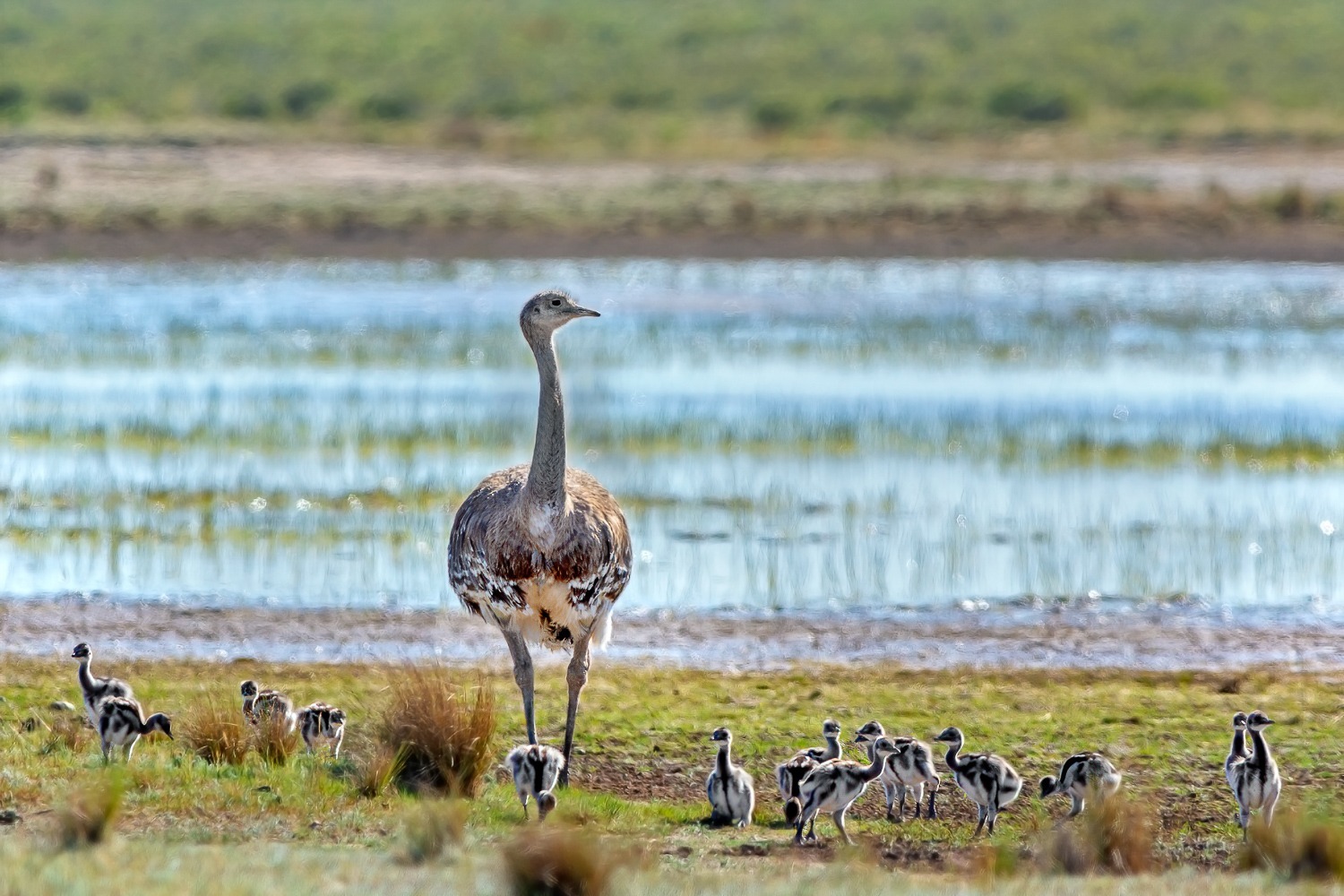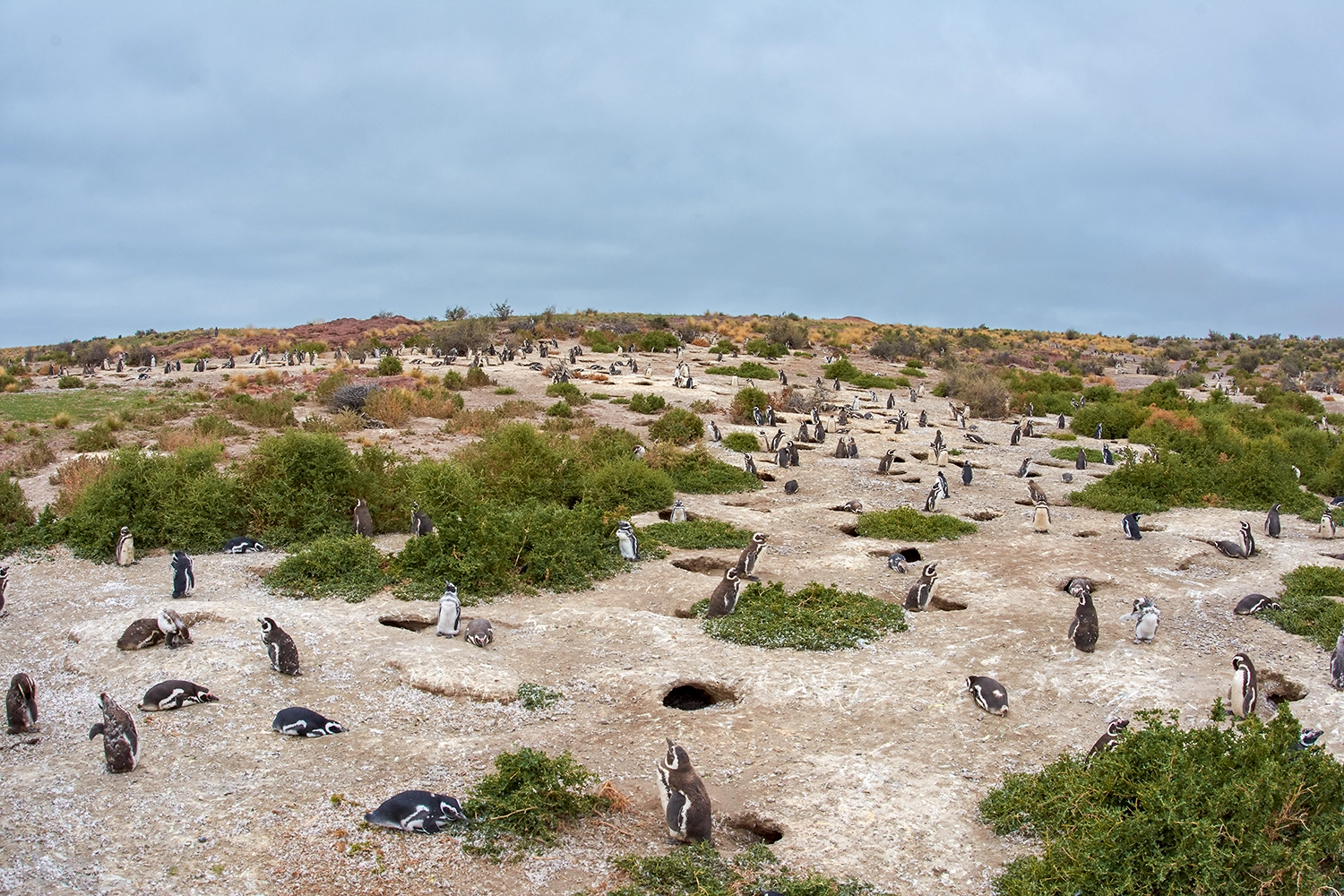
Birding in Peninsula Valdes is exceptional: a UNESCO World Heritage Site with more than 250 recorded species across marine, coastal and steppe habitats. Expect Magellanic Penguins, rheas and tinamous, plus diverse seabirds and migrants. Spring to early summer offers peak diversity, with rewarding birding year-round.
Birding Peninsula Valdes: key facts for birdwatchers
- Species: 250+ recorded across marine, coastal and Patagonian steppe.
- Habitats: cliffs and bays, tidal flats, dunes, shrub-steppe, salinas.
- Highlights: Magellanic Penguin, Lesser Rhea, Elegant-crested Tinamou, Patagonian Canastero, Two-banded Plover, cormorants, terns and petrels.
- Access: easy day trips from Puerto Madryn.
- Style: gentle walking on marked trails and viewpoints.
Species highlights for birdwatching in Península Valdés
- Coastal & marine: cormorants, terns, skuas, petrels, gulls; shorebirds on tidal flats (e.g., Two-banded Plover).
- Steppe & scrub: Lesser Rhea, Elegant-crested Tinamou, Patagonian Canastero, many passerines adapted to arid habitats.
- Colonies: Magellanic Penguins (seasonal), plus seabird roosts and breeding cliffs.
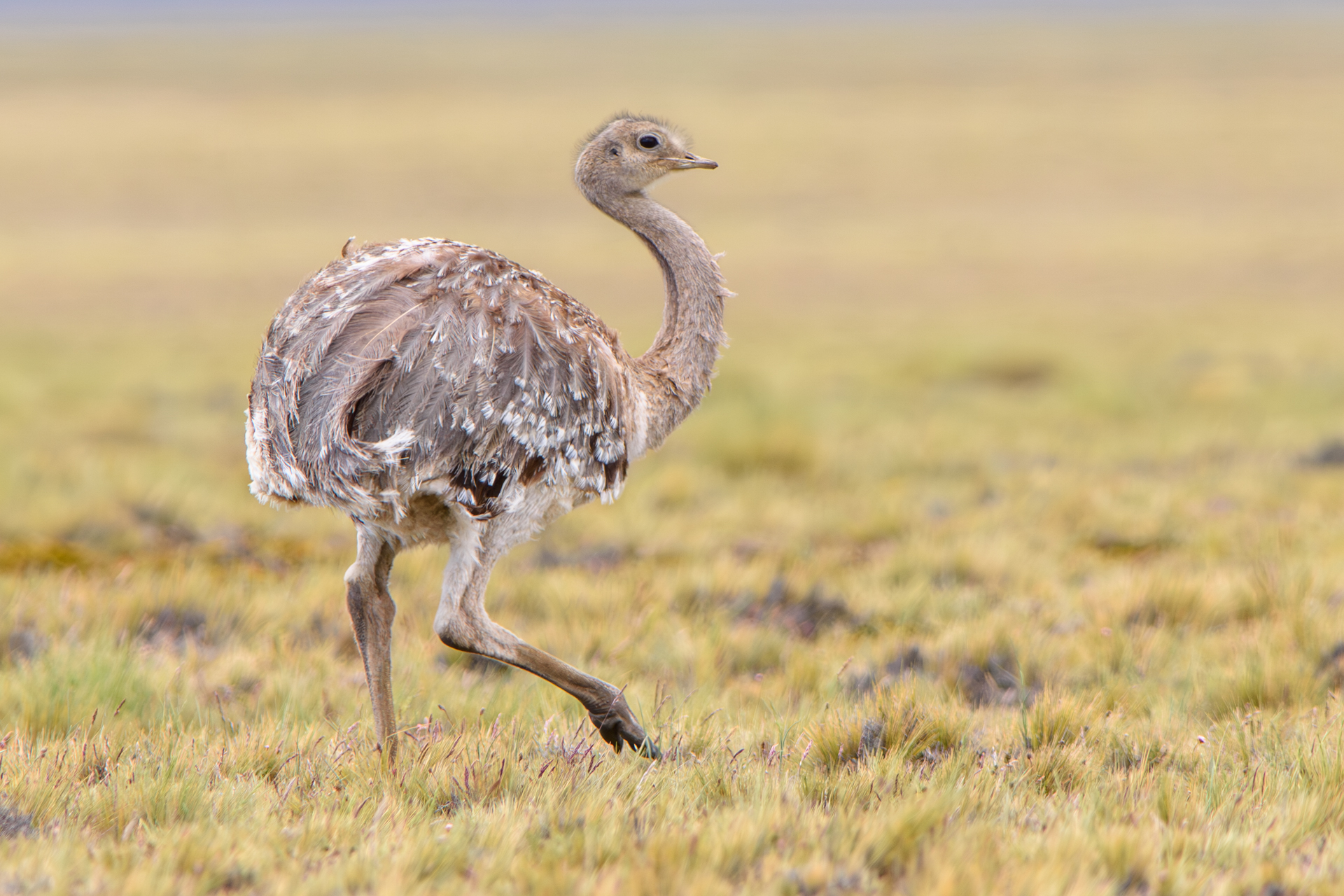
Best time for birding in Peninsula Valdes
Birding is year-round. Diversity and activity peak in spring to early summer (roughly September–December) with breeding behavior, migrants, and pleasant conditions. Late summer–autumn remain productive along the coast; winter favors steppe specialties on calm days.
Month-by-month snapshot for birding in Peninsula Valdes
| Months | What to expect |
|---|---|
| Sep–Feb (spring – early summer) | Peak diversity and activity. Breeding colonies active, displays, migrants present. |
| March | Moderate. Fewer migrants and little nesting activity; reliable residents and steppe specialties. |
| Apr-Jul (autumn – winter) | Quieter overall. Lower species counts and less colony activity; good days for steppe residents on calm weather windows. |
| August | Moderate. Fewer migrants and little nesting activity; reliable residents and steppe specialties. |
Year-round Patagonian specialties (residents)
- Sandy Gallito (Teledromas fuscus)
- White-throated Cacholote (Pseudoseisura gutturalis)
- Patagonian Canastero (Pseudasthenes patagonica)
- Band-tailed Earthcreeper (Ochetorhynchus phoenicurus)
- Elegant-crested Tinamou (Eudromia elegans)
- Patagonian Mockingbird (Mimus patagonicus)
- Lesser Rhea (Rhea pennata)
- Greater Wagtail-Tyrant (Stigmatura budytoides)
- Burrowing Parakeet (Cyanoliseus patagonus)
- Steinbach’s Canastero (Pseudasthenes steinbachi)
- Chubut Steamer Duck (Tachyeres leucocephalus)
These residents are reliable across seasons and can anchor a successful day even outside the peak months.
Where to go birding in Península Valdés (overview)
- Coastal viewpoints & bays around the peninsula for seabirds and shorebirds.
- Steppe tracks for rheas, tinamous and Patagonian endemics.
- Tidal flats & lagoons for plovers and sandpipers.
- Lookouts near Puerto Pirámides & Puerto Madryn for mixed species and sea watching.
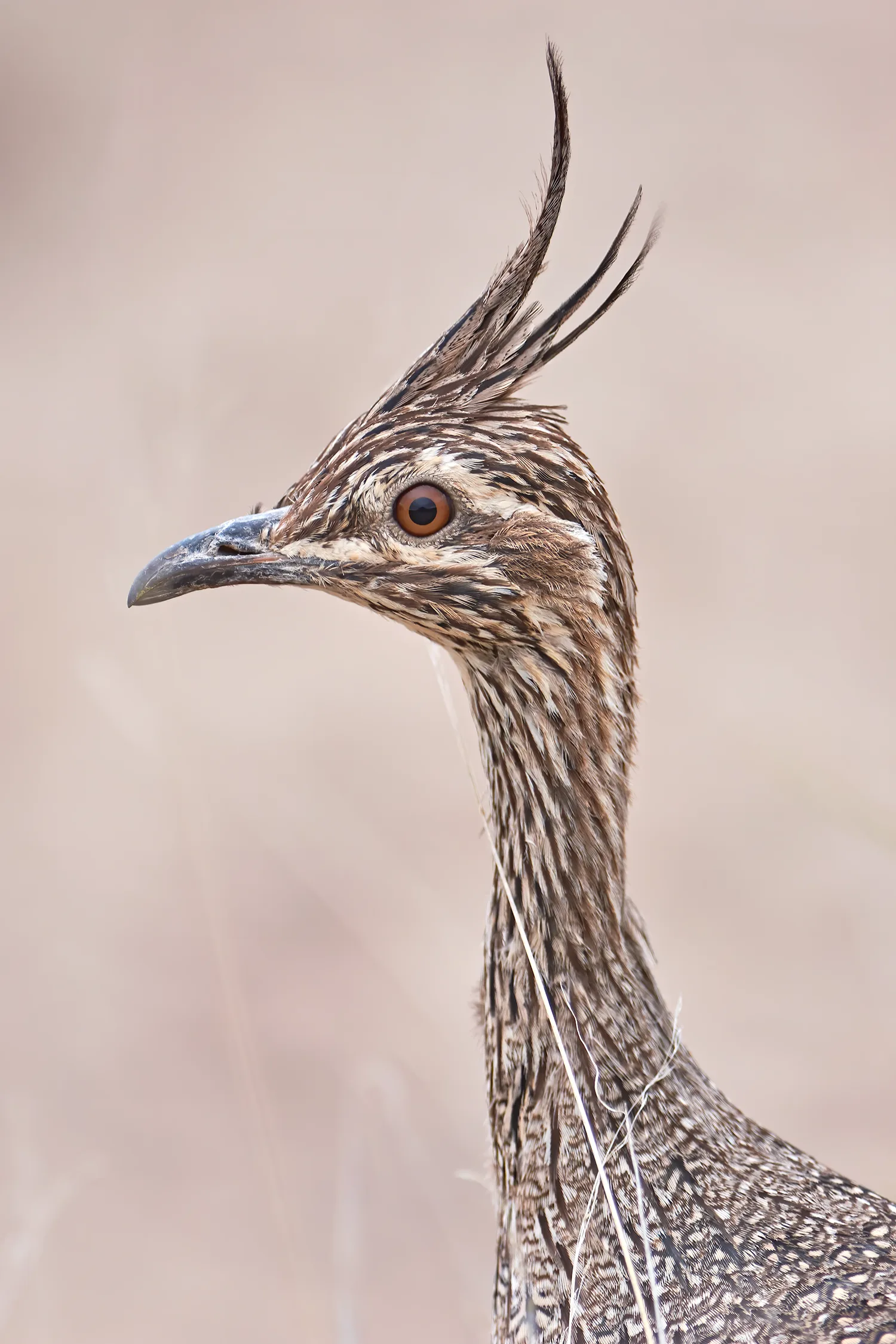
Responsible birding tips
Keep to marked trails, respect nesting distances and wind conditions on cliffs, avoid playback near sensitive species, and follow local guidelines during breeding seasons.
Ready to experience it in person? Below we invite you to join our birding tours in and around Península Valdés, all departing from Puerto Madryn:
We design private bird‑watching tours tailored to your schedule and skill level, from half‑day excursions to multi‑day expeditions. Discover Patagonian specialties across steppe, canyon, lagoon and coastal landscapes — always at your pace.
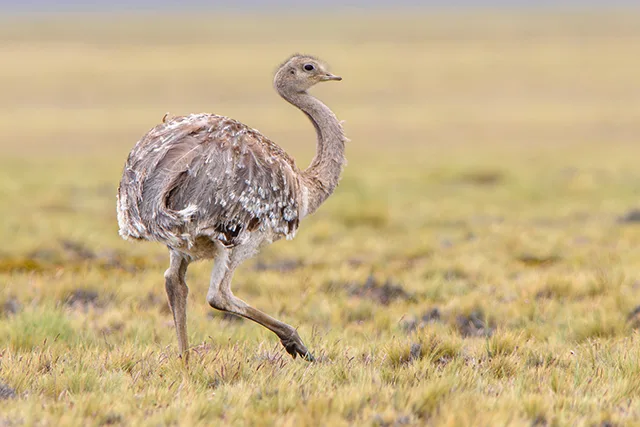
Birding Península Valdés
FULL DAYSeabird and steppe birdwatching in legendary Península Valdés
Learn more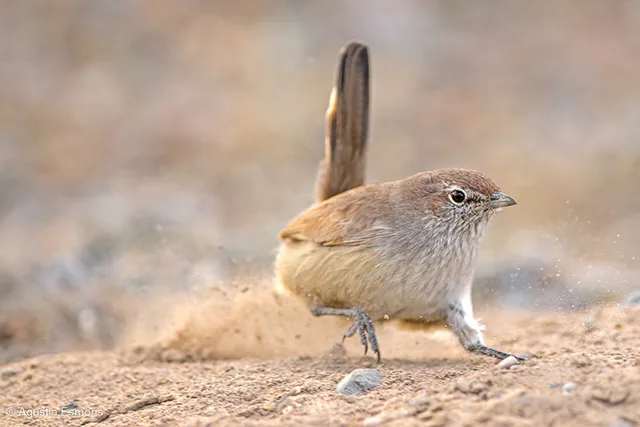
Argentina Endemics
Monte Desert & Patagonian Steppe
MULTIPLE DAYS Discover Argentina’s endemics on this exclusive birding adventure in Patagonia.
Learn more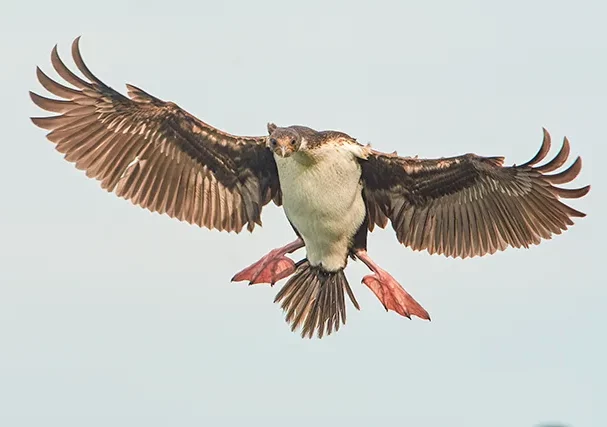
Signature Monte‑desert and coastal birds on a cruise‑friendly outing.
Learn moreCurious about mammals, reptiles, or native plants? Explore our Wildlife & Nature section.
